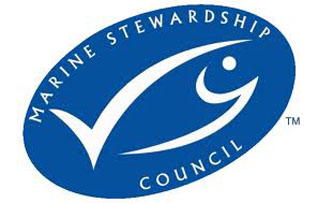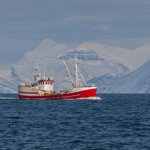Russia eyes MSC certification for Western Bering Sea pollock fishery as it enters assessment

A Pollock Catchers Association (PCA) fishery operating in the Navarinsky area of the Bering Sea has entered into Marine Stewardship Council (MSC) assessment.
According to a 30 September press release, the Western Bering Sea pollock fishery is being assessed against MSC’s Fisheries Standard courtesy of Lloyd’s Register, an independent assessor who will evaluate stocks of pollock in the West Bering Sea, the environmental impact of mid-water trawling, and the effectiveness of the fishery’s management system, MSC said. It is expected that the assessment will be completed by June 2021.
Established in 2006, PCA is one of the largest associations in the Russian fishing industry – the association is comprised of 26 companies who employ upwards of 12,000 people, with 90 fishing and processing vessels operating under its banner.
PCA catches 1.6 million metric tons (MT) of fish and seafood per year, with members primarily focused on pollock (Theragra chalcogramma / Gadus chalcogrammus) in the Far Eastern seas. The associated has reported it is responsible for 63 percent of the pollock catch (about 1.1 MT in 2019) in Russia, which is about 32 percent of the catch around the world, MSC said.
The association’s mid-water trawl pollock fishery in the Sea of Okhotsk was certified to MSC standards in September 2013, and then re-certified in 2018, “demonstrating its commitment to sustainability and well-managed fishing operations,” MSC said.
“The certified fishery represents 43 [percent] of all Russian pollock catch, leaving 57 [percent] of Russian catch not MSC-certified,” MSC said.
Russia’s engagement levels with the certification process are reaching new heights with the latest Western Bering Sea pollock fishery development, according to MSC Program Development Director Camiel Derichs.
“I’m delighted that the Pollock Catchers Association’s West Bering sea pollock fishery has now entered MSC assessment, driving the proportion of Russian pollock fisheries engaged in the MSC program to new highs. The improvements the PCA has worked on with other stakeholders in Russia over several years now gives the fishery confidence to be publicly assessed against the MSC standards by an accredited third-party team of experts. We wish PCA all the best during the independent assessment process,” Derichs said.
The second-most significant pollock area in Russia to the Sea of Okhotsk, the Bering Sea permits harvesting of the fish year-round, except during the spring spawning period when fisheries are closed. In the West Bering Sea, total allowable catch of pollock is set roughly at 390,000 MT for 2020.






Share